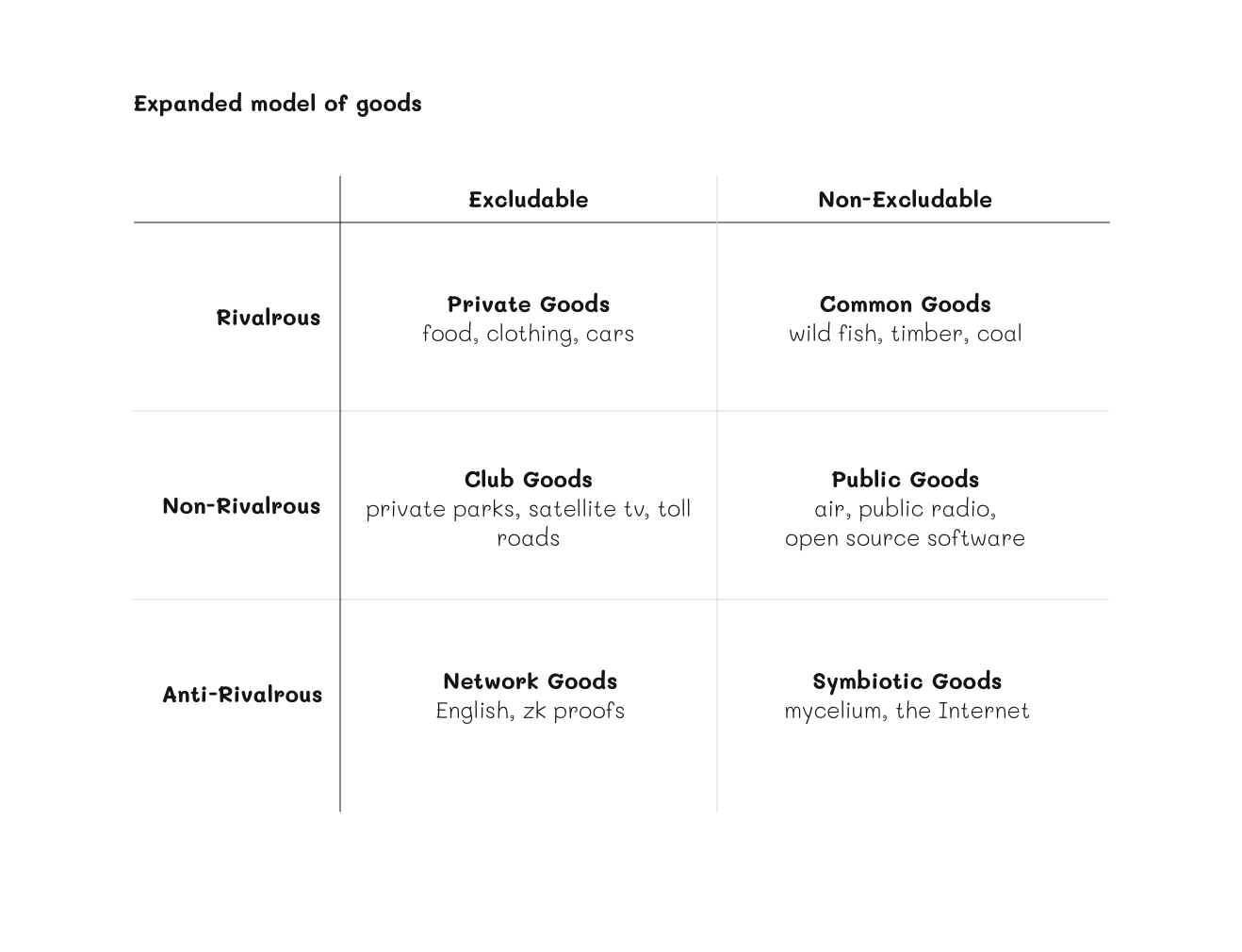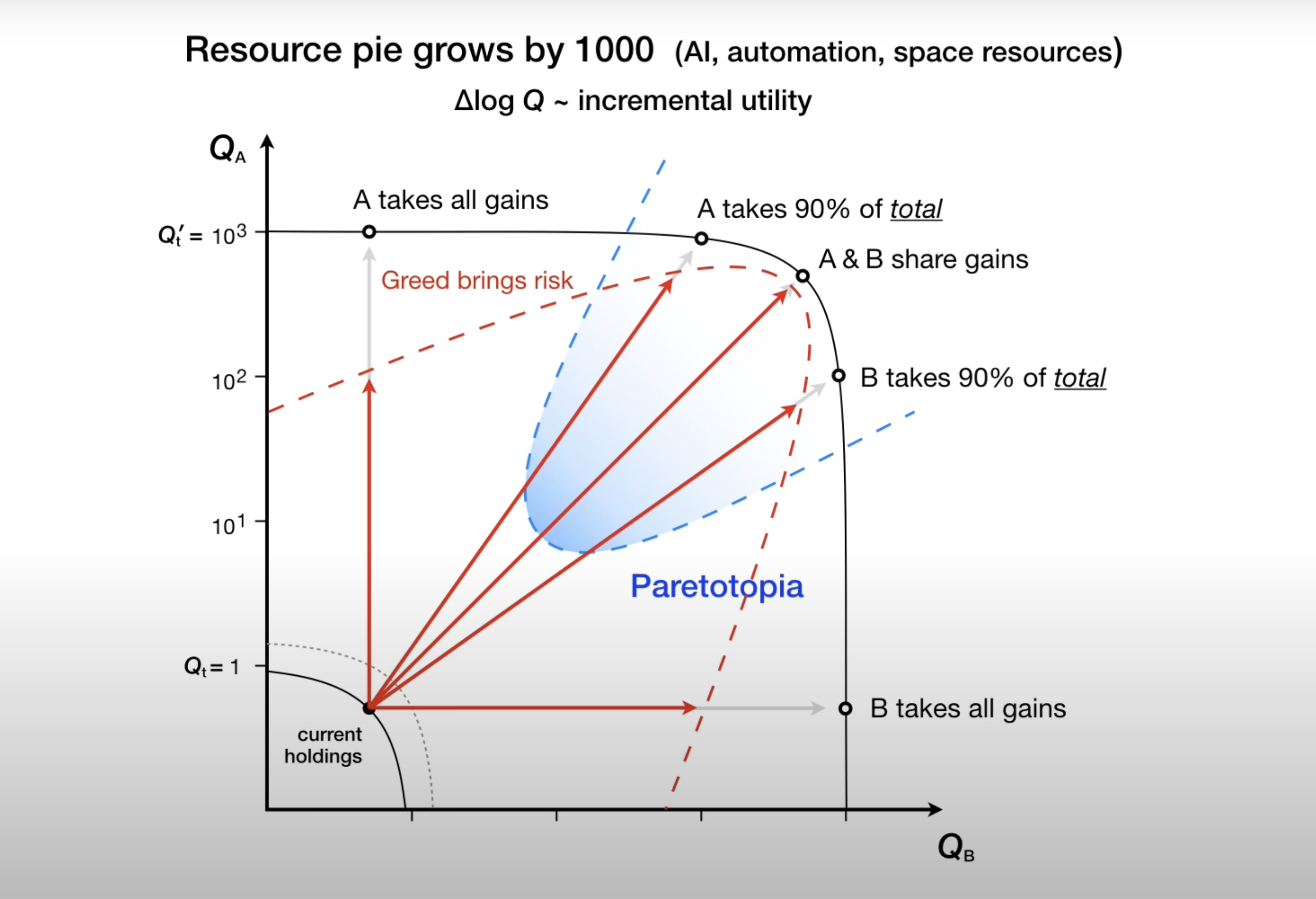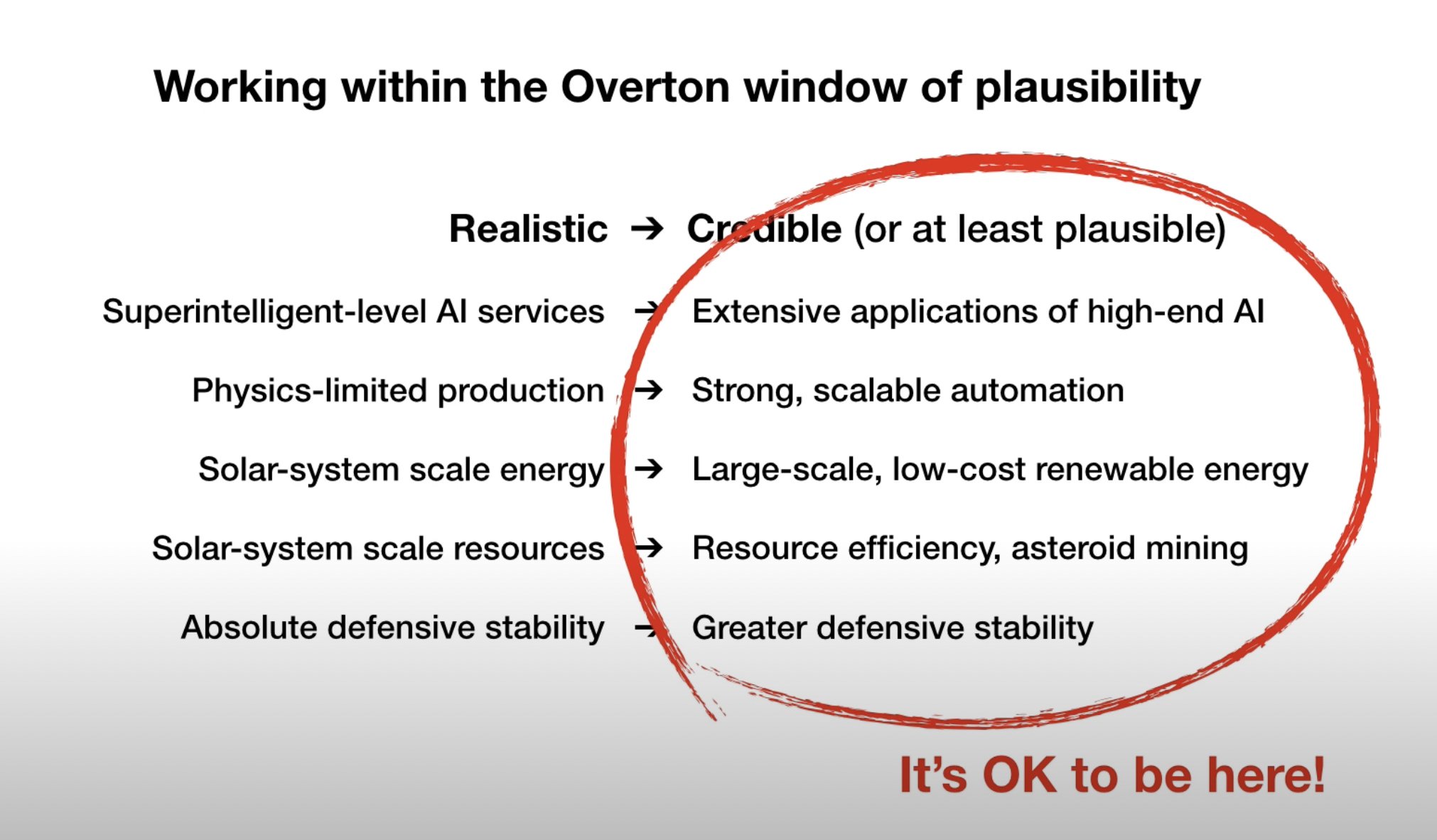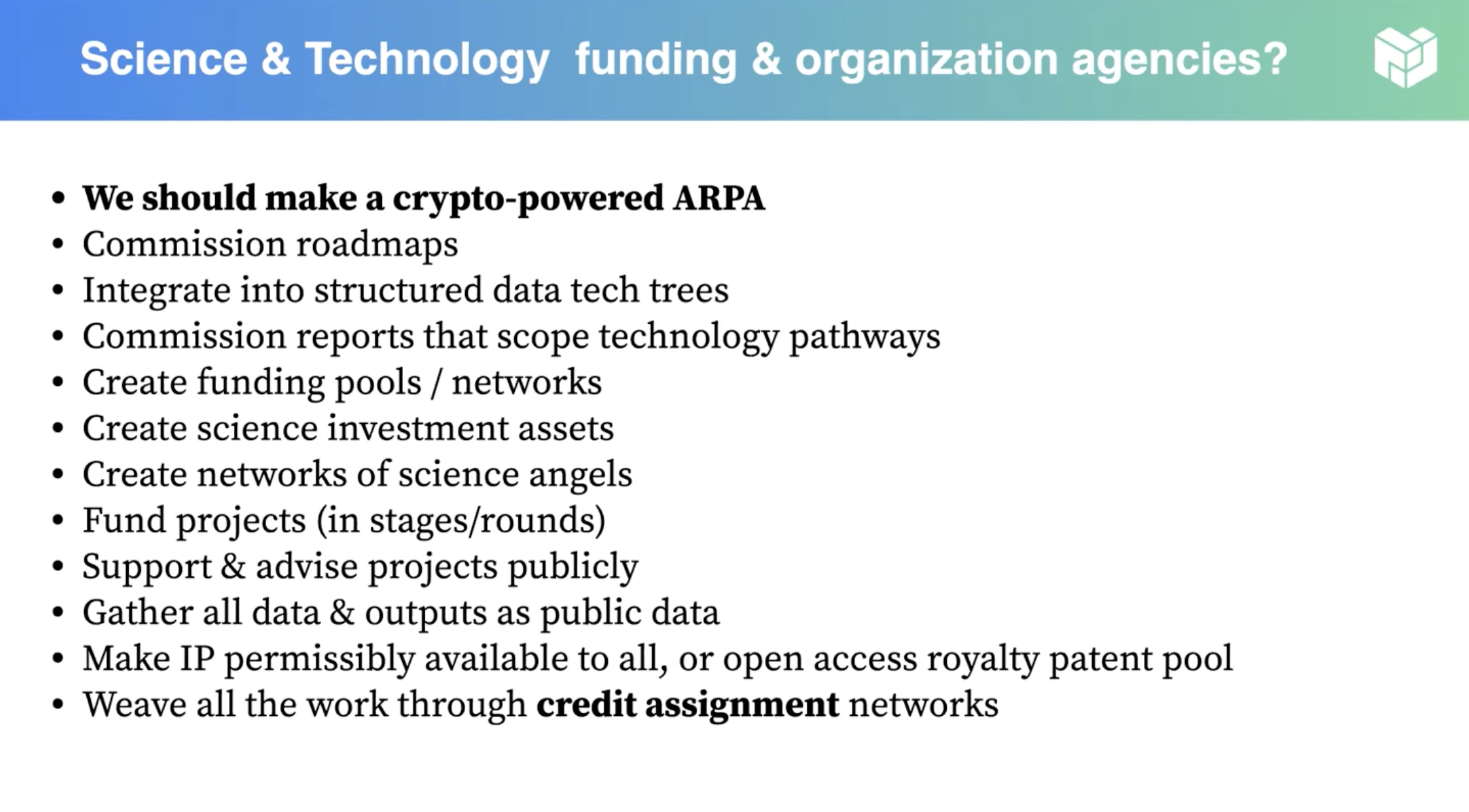Public Goods

Public goods are goods that are non-excludable and non-rivalrous. Non-excludable means that it is not possible to exclude anyone from using the good. Non-rivalrous means that one person's use of the good does not diminish another person's use of the good.
Science, public school, national defense, public parks, and public transportation are all examples of public goods. Open source software is another interesting example.
The core idea is to massively grow the pie for everyone, by massively speeding up scientific and technological progress for example.
One common way to fund public goods better is to have a progressive tax system where people who earn more money pay a higher percentage of their income in taxes. This ensures that everyone contributes to the funding of public goods and that those who can afford it pay more.
Some important public goods are sometimes overlooked by policy makers and funders, which are traditionally fairly risk-averse and not necessarily forward-looking and progressive. One example is the US National Institutes of Health (NIH) (great report), which tends to be conversative, risk-adverse and unfair in distributing funding amongst other critiques.
Some examples of public goods overlooked by national funding bodies include public hard tech and science solutions or open source software.
Incentivizing more people to contribute to public goods
One way to enable more individuals to participate in funding public goods is to establish a system of matching funds, whereby the government or another organization matches the amount of money that an individual contributes. This system would incentivize individuals to contribute more money to public goods, as they would know that their contribution would be matched. Another popular way to enable more individuals to participate in funding public goods is to create tax incentives for individuals who contribute money to public goods. For example, the government could give individuals a tax credit for every dollar that they contribute to public goods. This would make it more financially beneficial for individuals to contribute to public goods, and would thus encourage more people to do so.
There are a number of ways to enable the future of individuals participating in funding ambitious public goods, such as creating a culture of giving, making it easy to give, and increasing transparency. We can encourage more individuals to support causes they care about by showing appreciation for those who give back to the community through public recognition, awards, and other forms of appreciation.
Expanded model of goods by Carl Cervone (afaik) 
Paretotopian goal alignment by Eric Drexler
- pareto-preferred future: having good enough goal alignment when it matters
- recursive progress through ai. advanced ai will someday be on the verge of explosive growth. productivity capacity will (someday) be on the verge of enormous expansion. security systems could (someday, potentially) be benign and effective.
- our world is still somewhat zero sum given growth and progress is not progressing quickly enough, can change through radical progress
- pursuing paretotopian meta-strategies: understand and link realistic and credible capabilities, need to understand and accomodate diverse concern, need to deepen and expand the circle of discourse


—
Closing The Innovation Chasm – Juan Benet

Quadratic Funding
S-process funding - Andrew Critch
- Algorithm enabling multiple funders to simultaneously delegate the optimization of funding decisions to overlapping groups of trusted advisors
- Aggregating marginal value for specific initiatives to improve impact and allocation of donations
- Enabling discourse of assumptions between multiple funders optimizing their overall donations to efforts solving problems they all care about
Impact certificates and Impact Markets - Owen Cotton-Barratt
Funding public goods — algorithms and mechanisms – Vitalik Buterin
Beyond Philanthropy: Memetic Altruism and Future Prizes - Darren Zhu & Lawrence Wu
- status: contribution based nfts & utility: secondary markets, airdrops and discounts
- information asymmetry: prize speculation fees & impact certificates
- why of donation: Visibility (giving more when being watched), Peer pressure (social), Proximity (helping locally, friends and family), relatability
Pluralism
Pluralism as a social philosophy recognizes that there is a diversity of sociocultural groups and that it is important to foster cooperation between them. This cooperation can take the form of institutional pluralism, which is a contrast to philosophies that focus on either isolated individuals or on a unitary structure. Epistemic pluralism is also a contrast to traditions that seek out unitary ways of knowing. Plural institutions are often met with skepticism from advocates of monist philosophies.
In short, pluralism is the recognition and acceptance of multiple groups, schools of thought, or individuals, each with their own epistemic or institutional authority. This principle is typically applied in the context of social groups, where it is used to delegate activities and topics that primarily concern a particular group to the control of that group. Neutrality is another key principle of pluralism, which dictates that a set of formalisms and practices should be used to govern interactions between different groups, so that no one group is favored over another. Finally, pluralism also upholds the importance of cooperation across diverse groups, and the adaptability of the recognized groups to changes in the social landscape.
→ Why I Am a Pluralist by Glen Weyl
→ How Soulbound Tokens Can Make Gitcoin Grants More Pluralistic
—